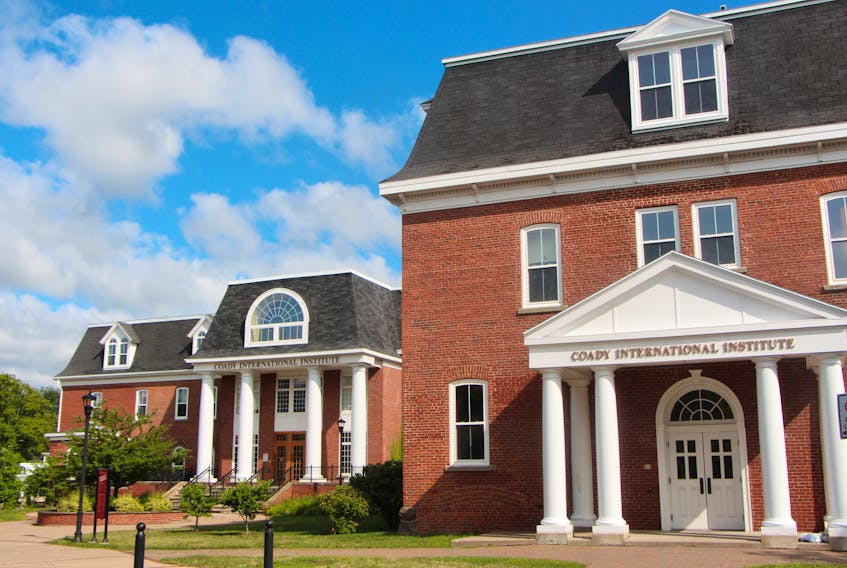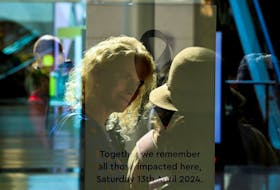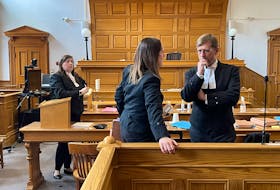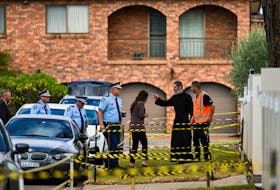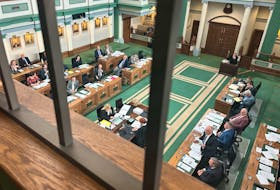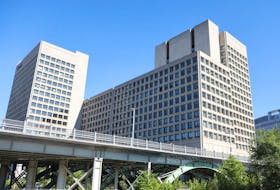ANTIGONISH, N.S. - Changes at the Coady International Institute have been on the minds of many, as reports of tension and dissention at the institute, a place of pride for so many, have been written about and well publicized.
Anthony Scoggins, director of education programs at the Coady, said while there are always small changes, from year-to-year, it’s more drastic ones, which could come down the road, which are stirring fierce debate amongst Coady faculty, staff and followers.
“There are always minor changes, I would say,” Scoggins said, speaking to the Casket Sept. 26. “I think the conversation is more around how do people see changes coming down the pipeline.
“So, if you ask me if there were changes from this year to last year, yes, there were some minor ones. Facilitators change, we change sequencing, a little bit of tweaking here and there, but, substantially, I would say not yet … the issue is really looking forward.”
Scoggins, who has a long history with the institution, starting as a student in 1979, returned only recently to assume his current position. He talked about taking the Diploma in Development Leadership program when first arriving at the institution and how that signature program has evolved over the years. He noted how it resembled a typical university program at one time, with a few classes a day, spread over six months.
“Diploma is a little shorter now; it’s down to five months,” he said. “The students are in the classroom from 8:30 a.m. on the day they arrive until 5:30 p.m., the day before they leave.
“They have modularized the course; rather than having a cooperative [course] a few times a week for the six months, you get two weeks on cooperative. And then you go on to a course on gender, and then something else,” Scoggins said, using those topics as an example of a course schedule.
“The nature of the educational process has changed because it’s a lot more intense, a lot more classroom time; some people are great believers in that, some are great critics of it.”
He talked more about the debate.
“Everyone has really strong opinions around this. For some it’s what’s the best educational experience for the student, that criteria. But other people say, actually, we have a whole lot of other obligations here. One of the reasons we went to this modularized [approach] was so we could actually bring in people who would only come for one or two courses. If you only wanted to learn about co-ops in the olden days, you still had to be here for six months. Now, if the model is only two weeks, you can get people coming in and just do that, then they leave.
“There is that advantage there. They don’t get the diploma but they get that little slice they want.”
Scoggins said the schedule could be an advantage for facilitators too.
RELATED STORIES:
Mourning the loss of my Coady family
Morning not mourning at the Coady
“Some people think that’s the greatest thing since slice bread, other people it’s the damnation of the institution; thinking we’re throwing too much stuff at them,” he said. “So there is a whole pedagogical; what’s best for the students, what’s best for the institute, and how do we strike the balance.”
He noted another layer is the carbon footprint of people flying from locales around the word for just a two-week course and how that is part of another debate on the use of technology to reach participants.
“Let’s look at the scope of online or remote, distant education, with the technology exists now. Some people in here think, again, that’s the greatest thing since slice bread because the world is our classroom now; we can reach out to anywhere in the world,” he said.
“And there are others who think it’s the death to what we do because the importance of what we do is in bringing people around the table, talking face-to-face, and providing them with a space and an opportunity where they are away from their work; where they can actually sit down here and reflect. Do all this [classroom work], but it’s all about being in a space where they can actively reflect.
“Some of my technology colleagues down the hall will say you can do that now online; you could have a webinar, set up mini-classrooms on the side [with people from different parts of the world].”
Scoggins said he doesn’t think siding with either position negates anything considered fundamental to the Coady.
“The founding principles of the Antigonish Movement or the way that Moses Coady worked,” he said. “To be perfectly honest with you, I think the strategy, the pedagogy and all of this, we can sort out, we’ll figure it out and it will be true to the principles … effective for the students.”
‘Transformative’ is another concept sparking debate, Scoggins noted.
“That we do transformative adult education; that we’re trying to transform, not just grow but to change, transform,” he said. “The debate becomes; are we trying to transform the individuals who come here? Or, are we giving individuals skills to transform their societies or communities?”
That can lead into a discussion of who should the Coady be more interested in accepting into the program; a person not necessarily affiliated with any organization who appears to have the potential to be a great leader or one already in a position of authority or leadership where, with a Coady education, can make an even greater impact.
“And then with that, are we mainly focusing on small organizations? There are people here who will say it’s really about the grassroots organizations and there will be others who say, no they’ll be flailing, we need to take someone from a bigger organization or even a government program or department who can make change happen, who can have influence,” he said.
“That’s a debate or issue; if we go back to the big organizations, then are we just feeding the machine? And other people will say, if we focus on the grassroots you’ll end up training 1,000 people and maybe three or four will do something significant. And while you have given that person an education and it’s all good for them, it really didn’t make much of a difference in the world. That plays out here, the selection and recruitment type of process.”
He returned to a thought on the Antigonish Movement noting he sees it defined more broadly – “that whole history of community engagement.”
“I don’t think we’re selling an approach; we’re trying to get people to reflect critically on – this is what worked in a particular time and place here. Why did it work? Well, let’s look at it – what did it achieve, what did it not achieve? What is the need now? Is it employment, environmental sustainability? Then you apply the tools and knowledge to those needs.”

